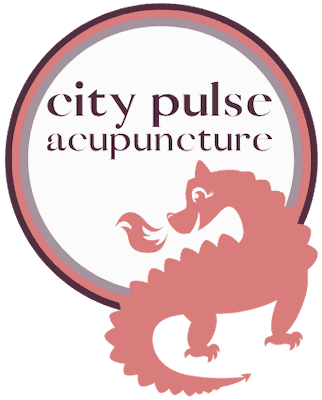
Insulin resistance is one of the most common metabolic factors influencing fertility. It affects how the body regulates blood sugar and insulin, creating hormonal changes that can interfere with ovulation and reproductive function. Environmental exposures, such as hormone disruptors found in some plastics, pesticides, and personal care products, can also influence insulin sensitivity and hormone balance. Understanding how insulin resistance is measured and separating evidence-based information from wellness trends helps individuals make informed decisions about their reproductive health.
How Insulin Resistance Affects Fertility
When cells become resistant to insulin, the body produces more insulin to maintain stable blood sugar levels. Elevated insulin can increase the production of androgens (male hormones), which disrupts ovulation and menstrual regularity. Over time, this imbalance may make conception more difficult.
Insulin resistance is especially common in people with polycystic ovary syndrome (PCOS), but it can also affect those without the condition. Addressing insulin resistance through medical care, lifestyle changes, and supportive therapies like acupuncture can help restore hormonal balance and improve reproductive outcomes.
Clinical Markers That Identify Insulin Resistance
The medical definition of insulin resistance relies on laboratory testing, not symptoms alone. These objective measures provide a clearer understanding of how the body manages glucose and insulin.
| Test | What it Measures | Typical Reference Range* |
| Fasting glucose | Blood sugar after 8–12 hours without food | Normal: under 100 mg/dL; Prediabetes: 100–125 mg/dL; Diabetes: 126 mg/dL or higher |
| Fasting insulin | Insulin levels after fasting | Optimal: generally under 10 µIU/mL (varies by lab) |
| Hemoglobin A1C | Average blood sugar over about 3 months | Normal: below 5.7%; Prediabetes: 5.7–6.4%; Diabetes: 6.5% or higher |
| Oral glucose tolerance test (OGTT) | Blood sugar response after consuming a glucose drink | Normal: under 140 mg/dL at 2 hours; Prediabetes: 140–199 mg/dL; Diabetes: 200 mg/dL or higher |
*Ranges may vary slightly by laboratory. An assessment for insulin resistance should be performed by a healthcare provider using these standard laboratory tests.
This clinical understanding differs from the wellness-industry version of “insulin resistance,” which is often used as a catch-all phrase to promote supplements or detox programs. True insulin resistance requires lab confirmation and medical evaluation, not assumptions based on fatigue or sugar cravings alone.
How Does Fertility Acupuncture Help with Hormone Balance?
Fertility acupuncture offers a complementary approach to improving insulin sensitivity in women and supporting hormonal and metabolic health. Within Traditional Chinese Medicine, insulin resistance is viewed as a disruption of the body’s internal balance, often involving the Spleen and Liver systems that influence digestion, circulation, and stress regulation.
From a physiological perspective, acupuncture may help:
- Promote regular ovulation by supporting balanced hormone signaling
- Improve blood flow to the uterus and ovaries
- Reduce stress-related cortisol elevations that worsen insulin resistance
- Support metabolism and energy balance
- Encourage stable menstrual cycles
Regular acupuncture treatments can enhance overall reproductive function, particularly when combined with medical care and sustainable lifestyle changes.
Integrating Acupuncture Into a Comprehensive Fertility Plan
Acupuncture works best as part of a complete fertility plan that includes medical monitoring, balanced nutrition, and physical activity. Every person’s response is different, but consistent treatment can lead to gradual improvements in cycle regularity, energy, and mood.
| Focus Area | Potential Benefit |
| Hormone regulation | More consistent ovulation and menstrual cycles |
| Circulation support | Improved uterine and ovarian blood flow |
| Stress balance | Healthier cortisol and insulin regulation |
| Metabolic support | Better glucose control and energy stability |
At City Pulse Acupuncture, treatment frequency typically begins with weekly sessions and adjusts as hormone and cycle patterns improve.
Expert Fertility Acupuncture Care in Oakland, California
City Pulse Acupuncture provides specialized fertility acupuncture and Traditional Chinese Medicine to support hormone regulation, metabolic health, and natural conception. Treatments are individualized to address underlying imbalances contributing to insulin resistance or irregular cycles.
To learn how fertility acupuncture can help support hormone balance and reproductive health, contact City Pulse Acupuncture or schedule an appointment today.
Frequently Asked Questions About Insulin Resistance and Fertility
Can insulin resistance cause fertility problems even without PCOS?
Yes. Insulin resistance can interfere with ovulation and hormone balance in people who do not have PCOS. In women with polycystic ovary syndrome and insulin resistance, the effects can be more pronounced.
How do I know if I have insulin resistance?
A healthcare provider can order fasting glucose, fasting insulin, hemoglobin A1C, or a glucose tolerance test to determine your insulin sensitivity. The homeostasis model assessment of insulin resistance may also be used.
Can acupuncture replace medical treatment for insulin resistance?
No. Acupuncture complements medical care, including treatments like metformin, by supporting hormone regulation and stress balance, but should not replace prescribed treatment. Studies have shown that acupuncture may improve insulin sensitivity in women with PCOS.
How long does it take to see results with fertility acupuncture?
Many patients notice changes in cycle patterns or energy within a few months of consistent treatment, though timing varies. The effect of acupuncture on improving insulin sensitivity may also contribute to fertility improvements over time.
Is fertility acupuncture safe when undergoing IVF or other fertility treatments?
Yes. Acupuncture can safely be used alongside assisted reproductive technologies to support relaxation and hormonal balance. Studies on the effect and safety of acupuncture show it is well-tolerated with minimal side effects when performed by licensed practitioners.
What is the homeostasis model assessment of insulin resistance?
The homeostasis model assessment of insulin resistance (HOMA-IR) is a calculation that estimates insulin resistance using fasting glucose and insulin levels. Your healthcare provider can determine if this test is appropriate for evaluating your metabolic health.













